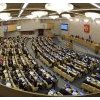Themes
Covert Action
Although the principle of state sovereignty lies at the heart of international law, the super powers have not refrained from corrupting governments, destabilising societies, eliminating their leaders and even overthrowing regimes by means of covert action. While this form of interference is relatively inexpensive when weighed against the potential gains, it inevitably undermines trust among nations.
The Anglo-Saxons have become the masters of the game. As joint signatories to a 1948 secret military pact (UK-USA + Canada, Australia, New Zealand), they fashioned espionage and covert action tools to serve their common project: the Cold War. They were rivaling in this field against the Soviet Union, over which they had already attained undeniable superiority. Both Maoist China and post-colonial France also resorted to analogous means with a view to securing zones of interest, mainly in Africa.
The landscape changed completely after the demise of the USSR. China stopped financing armed revolutionary groups all around and concentrated on pragmatic intelligence efforts to sustain economic cooperation development. France withdrew from its private reserve in Africa to leave room for the European Union. Having outlived the Yeltsin abyss, Russian intelligence set about restructuring at the national level and in their historical area of influence (newly independent ex-Soviet states) by mobilizing against external intrusions rather than interfering in the affairs of other countries.
As of 1995, the Anglo-Saxons invested massively in their secret services, whose budget tripled over a 15-year period. In addition, they have drawn the Israeli services into their structure either as full members or as subcontractors. In 2009, the Anglo-Saxon services (except Israel) operate on an employment level of 250,000 men and a budget exceeding 100 billion dollars (i.e. 15 times higher than Russia’s, virtually their main competitor). In effect, espionage and covert action have become the essential tools of forced globalisation.















